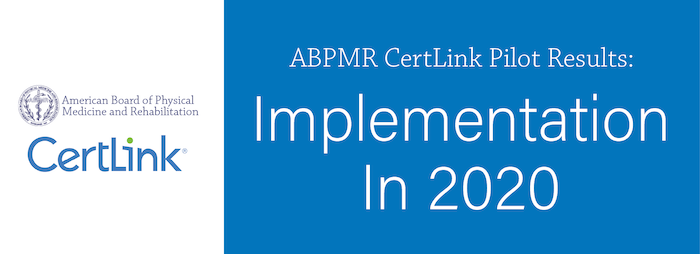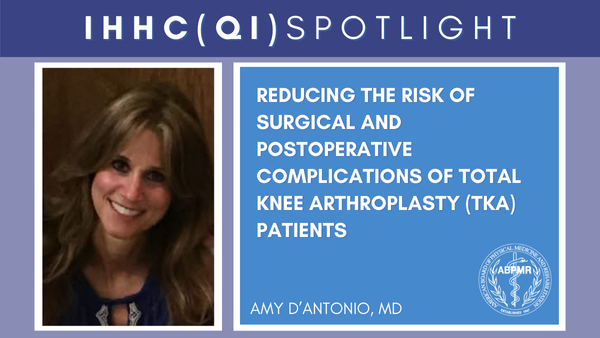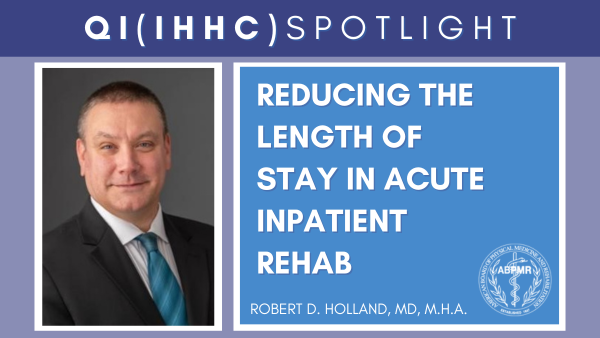CC
ABPMR Announces Retirement of MOC Examination; Implementation of Longitudinal Assessment for MOC

After a successful acceleration of our longitudinal assessment last fall and today’s announcement of the overall success of the pilot based on four outcomes, today the ABPMR is announcing its plans to implement longitudinal assessment in 2020 to replace the 10-year, secure MOC Examination.
CertLink Available to Diplomates in 2020; Transition Allows Options
The ABPMR is implementing longitudinal assessment for all diplomates in a way that honors their current 10-year certificates and eases the transition for those who will be close to closing out a 10-year cycle in the next few years.
All ABPMR diplomates maintaining primary certification in PM&R will be able to access CertLink in January 2020.
Diplomates whose certificates expire in the next four years have the option of satisfying their knowledge assessment (MOC Part III) requirement by meeting a CertLink participation quota, or by taking the MOC Examination by the last administration in 2020. Diplomates who are at least five years away from certificate expiration will enter a CertLink assessment cycle five years prior to their certificate expiration date.
The ABPMR is encouraging all diplomates to use CertLink based on evidence that it’s effective in revealing knowledge gaps and helping physicians learn — and to take advantage of the available self-assessment CME (SA-CME) that will be offered to anyone participating.
Eventually, we will set fees in line with our cost to run the program, but for now diplomates will continue to pay the current $200 annual fee with no additional cost for CertLink access.
More Information in Diplomate Emails, on ABPMR Website
Personalized details were emailed to all diplomates today, and all the information is available on new pages of our website today as well — we recommend you start with our brand new CertLink content, which includes details on:
- The customization system
- How we’re scoring CertLink assessment
- “What About Me” interactive tool
- Re-entry pathways
ABPMR Executive Director Carolyn Kinney, M.D., recently reflected on the journey to implementing longitudinal assessment for all diplomates.
“After we started the pilot, our diplomates were optimistic but also wanted change to happen sooner than later,” says Dr. Kinney. “We were still committed to determining whether this innovation resulted in improvement in exam scores, showed evidence of learning, and was a product our diplomates would find valuable and relevant.”
Dr. Kinney points out that the successful acceleration wouldn’t have been possible without the volunteer pilot participants. “We’re so grateful to our nearly 400 CertLink pilot participants for stepping up to participate in the pilot as well as being willing to take the MOC Examination in February instead of opting to take it in the fall. It’s because of them that we’re able to make these announcements today.”
More information on implementation can be found on the ABPMR website.

